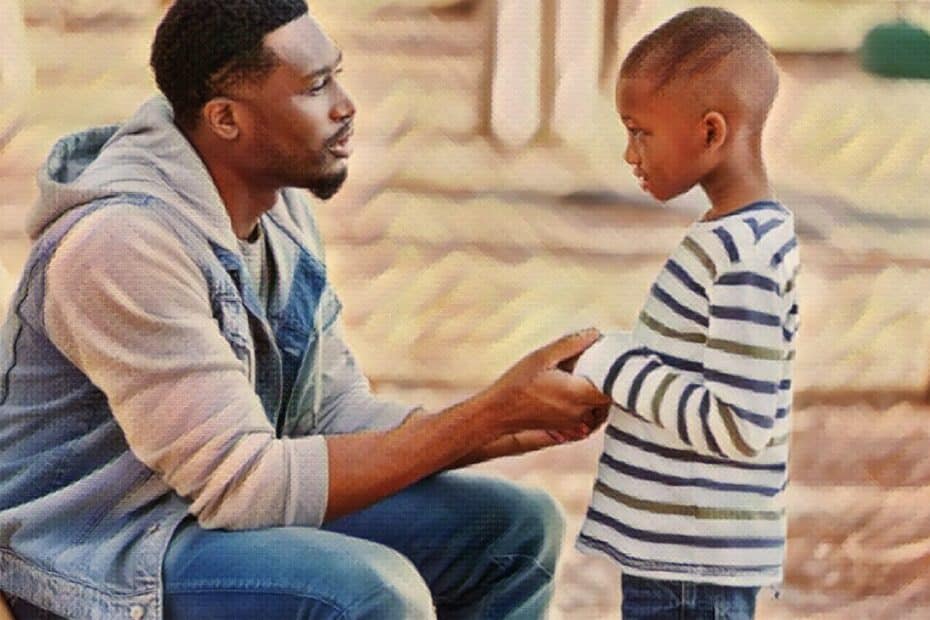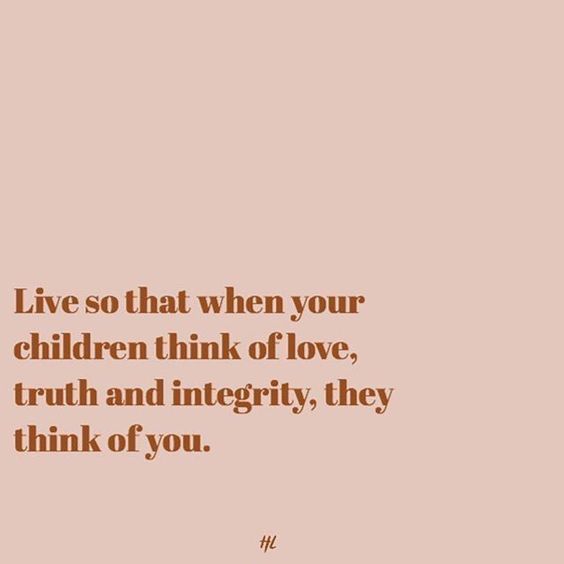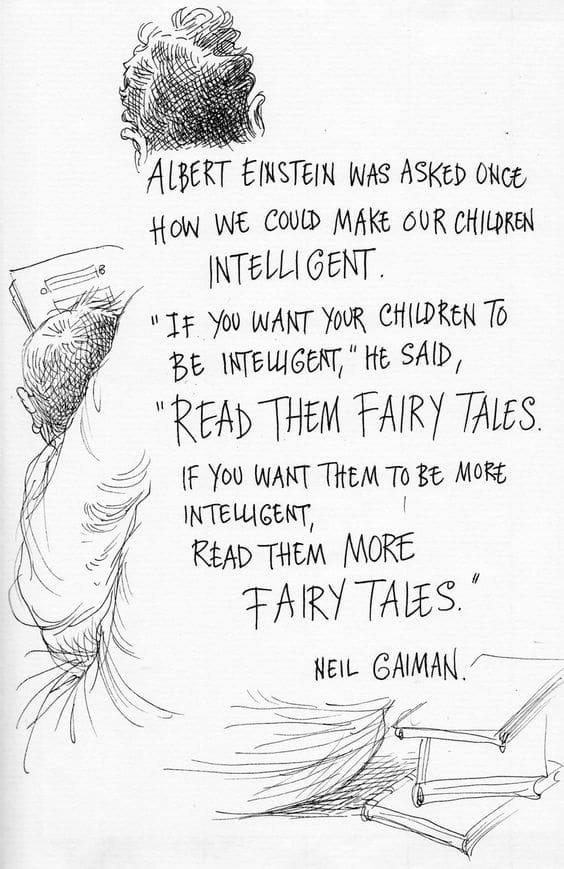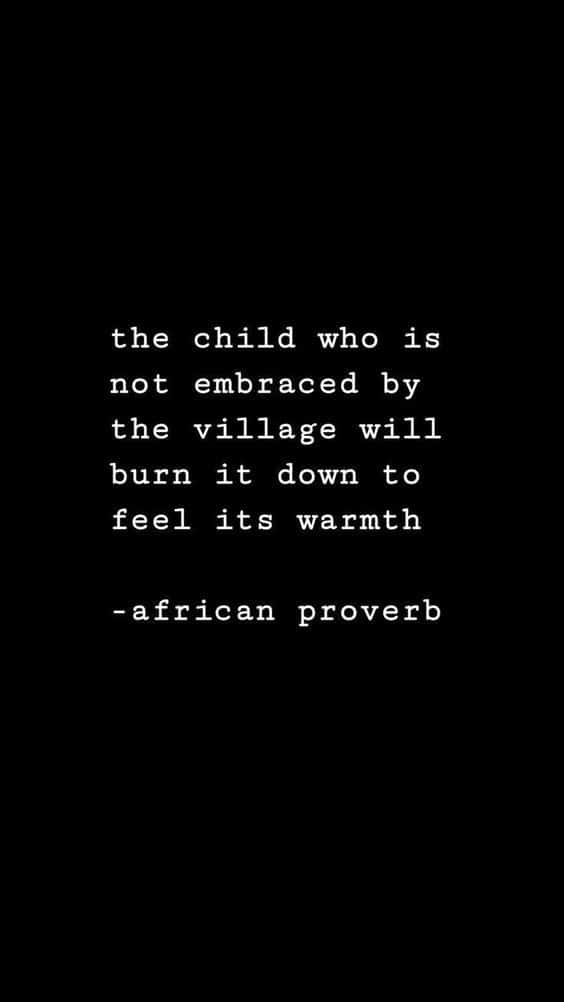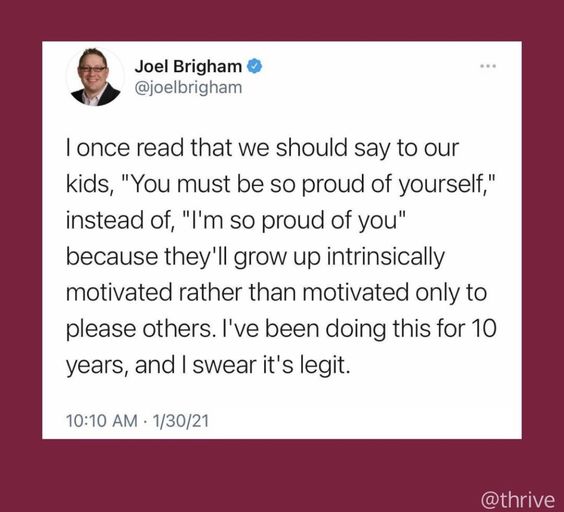“What if instead of being concerned, you were just aware? What if instead of talking about behavioral issues, you just talked about behaviors? How about instead banning curse words from your house, you banned negative self-talk, maybe negative talk entirely? Instead of complaining about their use of slang or improper English, you tried to limit complaining itself? What if instead of trying to find a nice way to point out that another kid is playing better than yours, you just dropped comparison altogether?”
Ryan Holiday, Daily Stoic Blog
“Talking and reasoning does not even have one thousandth the influence a true example has. All lessons about how to behave are worthless when children see the opposite in real life.”
Leo Tolstoy, A Calendar of Wisdom (Page 373)
“If you raise people to praise only wealth, power, and glory, then naturally they will praise only these things. If you raise people to love the feeling of love, they will start to live in love.”
Mee-Tee, via A Calendar of Wisdom (Page 363)
Please Stick With Me — For All Parents Raising Tweens and Teenagers
Excerpt: This is a letter from your teen to you. It’s a reminder of why being (raising) a teen is so hard and what you can do to actually help them.
Read More »Please Stick With Me — For All Parents Raising Tweens and Teenagers
“It’s impossible to teach your child everything they need to know to thrive in an unpredictable world. But when you focus on reading, you can rest assured that you’re building the skill that supports all others. It truly facilitates learning in every other area of life—academically and personally, as workers and as citizens—and is the undisputed best tool to help kids meet the demands of adulthood. It’s also a powerful bridge to the best of public life.”
Maya Payne Smart, Reading For Our Lives
“I will play with my [children] and joke with my [children], but business is business. When the subject is a serious one, you don’t go around trying to keep from hurting [their] feelings. You say what must be said and set the rules which must be set without worrying about whether [they] like it or not.”
Bruce Lee, Striking Thoughts (Page 88)
“By picking their own punishments, children become more internally driven to avoid them. By choosing their own rewards, children become more intrinsically motivated to achieve them. Let your kids take a greater role in raising themselves.”
Bruce Feiler, The Secrets of Happy Families
“A recent wave of research shows that children who eat dinner with their families are less likely to drink, smoke, do drugs, get pregnant, commit suicide, and develop eating disorders. Additional research found that children who enjoy family meals have larger vocabularies, better manners, healthier diets, and higher self-esteem.”
Bruce Feiler, The Secrets of Happy Families
20 Powerful Phrases That Will Change Your Parenting Forever
Excerpt: 1) “I will always love you.” This is one step above “I love you” and reminds your child that nothing they do can make you love them less…
Read More »20 Powerful Phrases That Will Change Your Parenting Forever
“Say your son or daughter jumps into the car after soccer practice and says, ‘I hate it. I’m never going back. I quit.’ This always strikes a nerve with parents who are likely to respond with: ‘You can’t quit. Where’s your team spirit?’ or ‘Oh my God, what happened? I’m going to call the coach!’ or ‘Are you hungry? Let’s go eat. You’ll feel better.’ None of that is listening. Grilling them about what happened is interrogating. Telling them they shouldn’t feel how they feel is minimizing. And changing the subject is just maddening. Kids, like all of us, just want to be heard. Try instead, ‘Have you always felt this way?’ or ‘What would quitting mean?’ Look at it as an invitation to have a conversation, not as something to be fixed or get upset about.”
Kate Murphy, You’re Not Listening
“If there is anything that we wish to change in the child, we should first examine it and see whether it is not something that could better be changed in ourselves.”
Carl Jung, via Sunbeams (Page 156)
“A mother is not a person to lean on but a person to make leaning unnecessary.”
Dorothy C. Fisher, via Sunbeams (Page 137)
“The Cardinal Rule of Behavior Change: What gets rewarded, gets repeated. What gets punished, gets avoided. Don’t reward behavior you don’t want to see repeated.”
James Clear, Blog
“Love has no claims. Love has no expectations. Most of us were raised to become prostitutes. We have the illusion that with good behavior, good grades, lots of awards, pretty clothes, nice smiles, we can buy love. How many ifs were you raised with? I love you if you make it through high school. I love you if you bring good grades home. Boy, would I love you if I could say my son is a doctor. You become a doctor or a lawyer, or whatever your parents never were able to become, with the illusion that they will love you more. Love can never be bought. There are people who spend their lives prostituting themselves, pleasing other people in the hope of getting love. They will shop the rest of their lives for it and they will never find it.”
Elizabeth Kübler-Ross, via Sunbeams (Page 120)
“It is a good thing, it is even salutary, for a child to have periods of boredom, for him to learn to know the dialectics of exaggerated play and causeless, pure boredom.”
Gaston Bachelard, via Sunbeams (Page 117)

